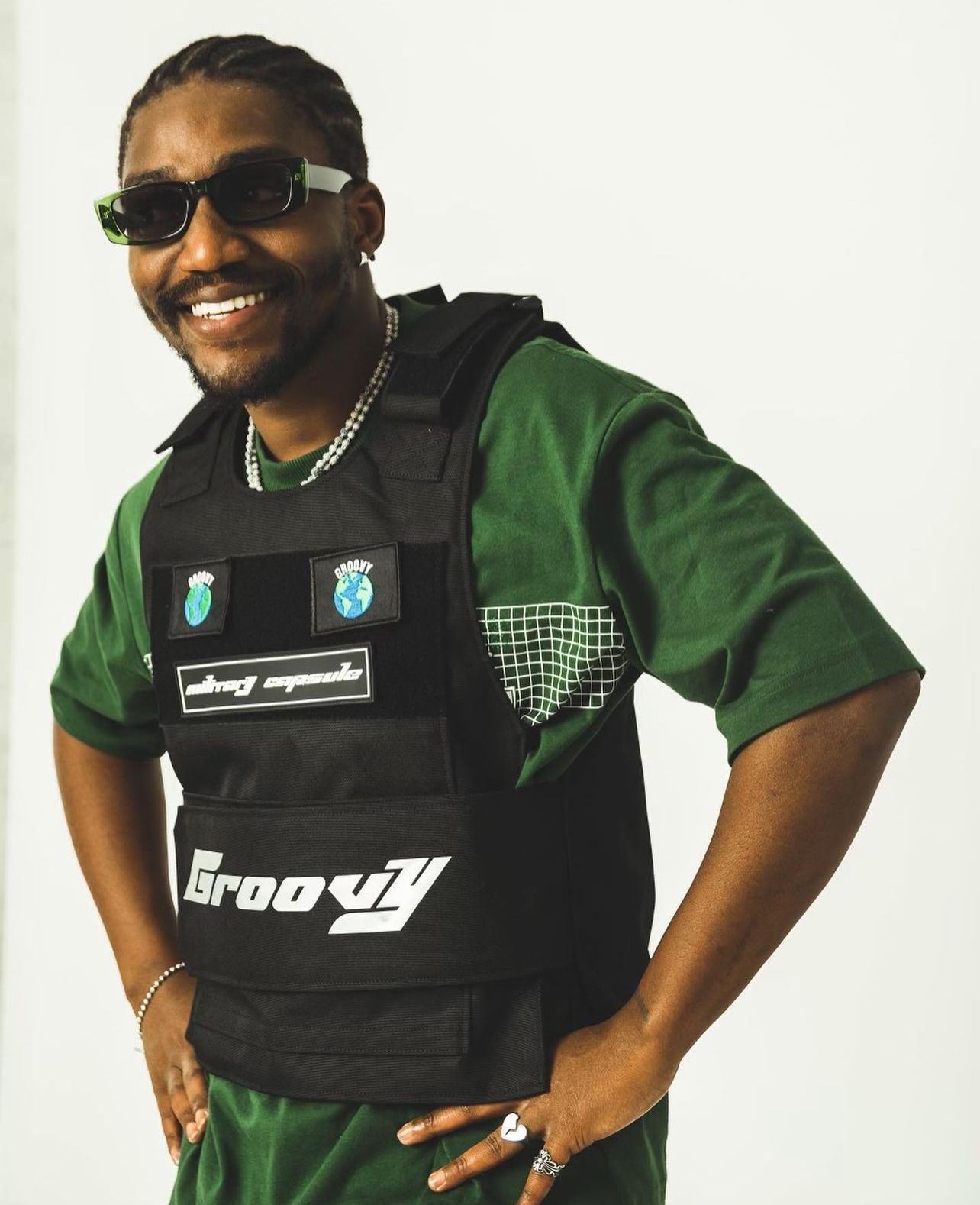I help shape narratives around modern African identity, global creative exchange, says Mark

Reynolds Mezue Mark is one of Nigeria’s finest poetic voices, creative writer, and cultural storyteller currently based in the UK, who uses lived experience to share experiences across two countries, Nigeria and the United Kingdom. In this interview, Mark shares his artistic journey as we explore his creative practice as a poet-writer and performance poet. He spoke with ANOTE AJELUOROU, a Nigerian journalist and reknown arts and culture critic, known for founding and rebranding the online platform: TheArtHubNg
Could you share your creative journey with us?
I’M a writer, who observes and reflects. My work often explores identity, belonging, and the silent spaces between tradition and modern life. I use poetry to document the inner lives of people like me —migrants, dreamers, and those still learning how to call two places home. Beyond poetry, I work in creative media and culture, often collaborating with brands and artists to build visual and written stories that connect Africa to the world. I’m also part of One Big Cultur, where I help shape narratives around modern African identity and global creative exchange.
It started through journaling and writing down my thoughts during secondary school in Nigeria. Poetry became my way of making sense of the noise around me, from social issues to personal ones. Moving to the UK added a new layer. Suddenly, I found myself living between two worlds, learning to carry my culture while adapting to another. My creative journey has been one of rediscovery, finding my voice again in a new land.
I know a lot of creative individuals, especially poets, are inspired by different muses. What inspires you to write?
Life itself in all its contradictions. I write from the moments people overlook: the exhaustion of trying, the joy in small wins, the heaviness of silence, the beauty of difference. I’m inspired by people, migrants, artists, hustlers, those still figuring things out. My poems often start from emotion before they find structure.
As an immigrant in the UK, who is working and quite busy, how do you navigate developing your creative practice and poetry with task of daily living?
It’s not easy to balance at all. I’ve learned to create in fragments, writing lines on train rides or recording thoughts between long days. My art has had to adapt to my reality. I no longer wait for perfect moments; I write through exhaustion, through the ordinary. That’s how I stay grounded by letting life itself become part of my poetry.

Could you share the inspiration and quotes from your favourite work of poetry?
One of my favourite pieces I’ve written is from my collection Finding Balance. It says, “The world now fits in my hand, but my peace does not.” That line captures how I feel about our modern reality: fast and connected, yet often disconnected within. Another favourite is from ‘Cry Blood’, which explores masculinity and silence. It reminds me that even strength has a pulse.
Where do you see yourself in the next 10 years as a Nigerian poet living in England?
I see myself building spaces, both physical and digital, where African poets across the diaspora can connect and publish freely. I want to grow beyond being just a poet; I want to become a curator of African creative expression. In 10 years, I hope to have published several collections, taught creative writing workshops, and continued using my voice to bridge cultures.
As a migrant, how has this status coloured your writing, and how does writing reflect and inspire your journey of migration?
Migration taught me patience, humility, and gratitude, lessons that show up in my writing. Being a migrant sharpens your awareness; you start noticing how identity shifts depending on where you stand. My poems often explore that tension, the feeling of being both seen and unseen, of belonging everywhere and nowhere at once. Writing helps me process it.
As regards lived experience, how do you intend to use the platform you have as a poet to inspire younger poets who may be aspiring to your level?
I want to use my platform to make creativity feel possible. For many young poets, it’s not a lack of talent but a lack of access and belief. Through my work with One Big Cultur and other collaborations, I hope to spotlight new writers, share their stories, and create mentorship opportunities that feel human and accessible. It’s about leaving the door open behind you.
What advice would you give to any young person out there aspiring to be a poet someday?
Start small, but start honestly. Don’t write to impress, write to express. Poetry doesn’t have to sound like anyone else’s; it just has to sound like you. Read, live, observe, fail, and try again. Your story matters, even when it feels too ordinary to tell. And remember, art is not a race.
Reynolds Mezue Mark: A Closing Review
A Nigerian poet and creative writer who keeps finding new ways to tell old feelings, Mark writes from the small corners of life; from waiting rooms, bus rides, lecture rooms, church pew, and memories that won’t sit still. Before he moved to the UK, he used to spend long evenings at Terra Kulture, Freedom Park and creative spaces in Lagos, just watching people read their hearts out. He learned a lot from listening to how a line can break one open, how silence after a poem can say more than words, and how applauses affirm a shared humanity. Greatly inspired by Lagos nightlife and literary festivals, and shaped by the UK’s status-conferral life, a living reality that makes people at home confer a status of arrival on you. Mark merges reality with expectations in his literary works.
According to Mark, “Living in the UK has its own story, a mix of distance, growth, and rediscovery. Poetry helps me stay rooted. It’s how I keep home close, even when everything around me feels foreign. I’ve read in small rooms, university halls, and open-mic nights where strangers nodded along like old friends”.
Mark has many published and unpublished poems on varying subjects. His Poetry Chapbook, Ikeja to Oxford Circus explores his unique poetic voice, showcasing his thematic preoccupations and the many ways he uses poetry to understand and interpret the ways of the world and ways of being in the world.




